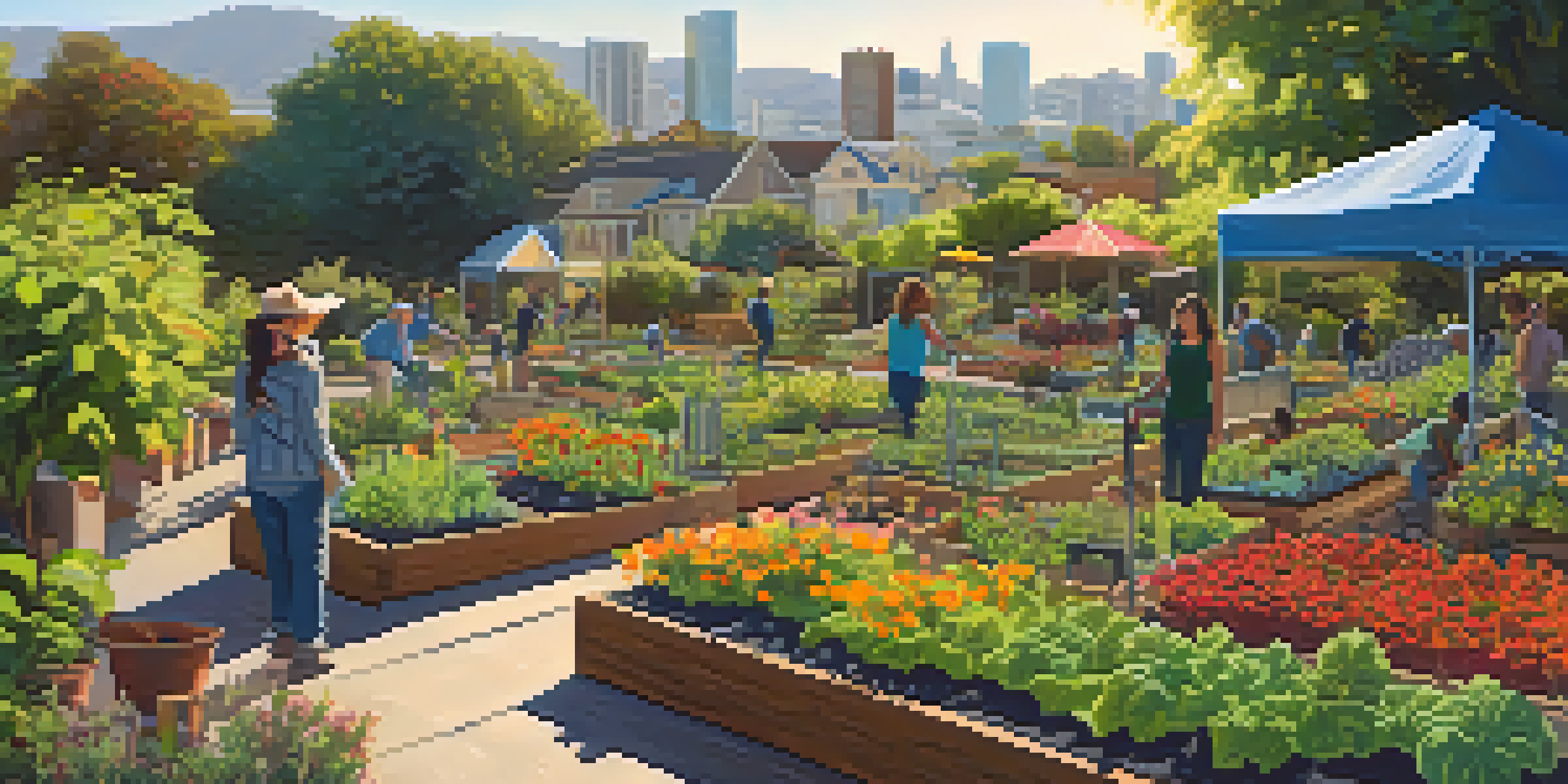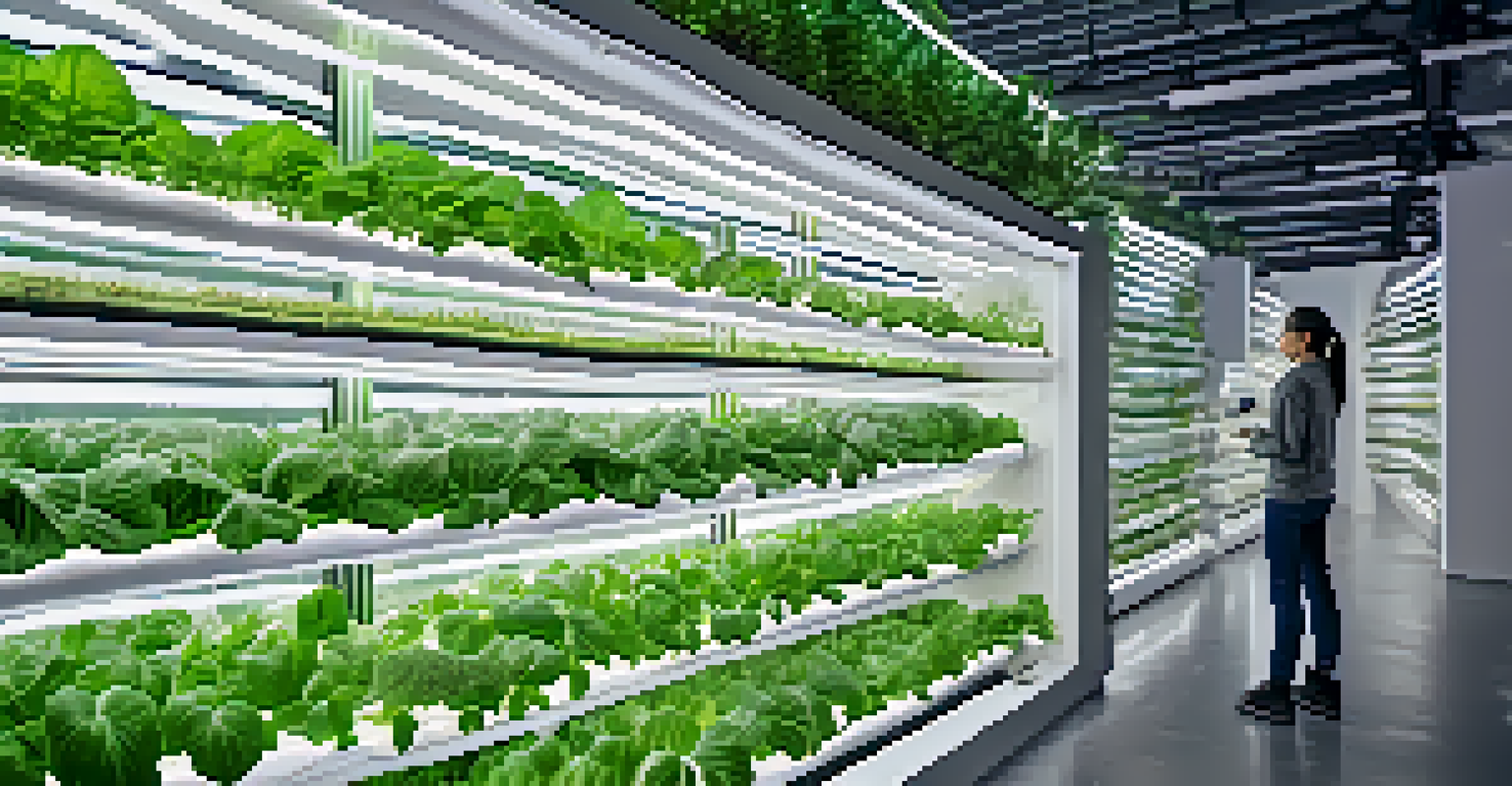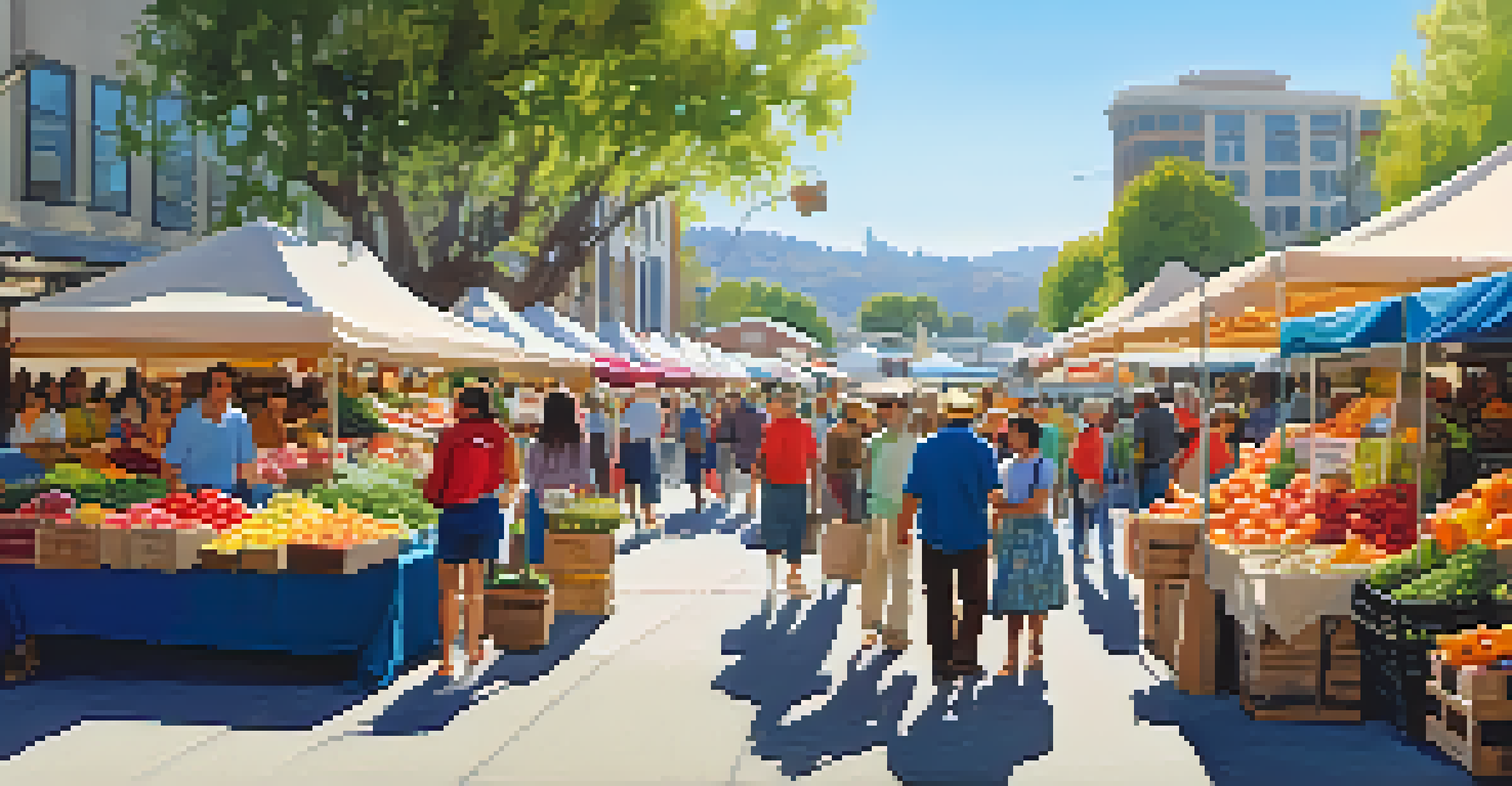Exploring Sustainable Urban Agriculture Practices in San Jose

Understanding Urban Agriculture and Its Importance
Urban agriculture refers to the practice of cultivating, processing, and distributing food in and around urban areas. It's not just about growing food; it's about creating a sustainable ecosystem that benefits communities, the environment, and the economy. By incorporating urban agriculture, cities like San Jose can address food security, reduce carbon footprints, and enhance local biodiversity.
Urban agriculture has the potential to transform our cities into greener, healthier places, connecting communities while addressing food insecurity.
In San Jose, the movement towards urban agriculture is gaining momentum, with residents turning vacant lots, rooftops, and even backyards into productive gardens. This shift is crucial as it promotes local food production, which can significantly reduce the distance food travels from farm to table, minimizing greenhouse gas emissions. Moreover, urban farms can help combat the urban heat island effect, making cities cooler and more comfortable.
As we explore sustainable practices in urban agriculture, it’s essential to recognize how these initiatives can foster community engagement. Local growers and urban farmers often collaborate with schools and organizations, creating educational programs that teach about nutrition and sustainable practices. This approach not only enhances food literacy but also builds stronger, more resilient communities.
Innovative Techniques in Urban Farming
San Jose is home to a variety of innovative urban farming techniques that are redefining how city dwellers think about food production. Vertical farming, for example, allows growers to maximize limited space by stacking crops in layers, often using hydroponics or aeroponics. This method not only saves space but also uses up to 90% less water than traditional farming methods, making it an attractive option for urban environments.

Another notable practice is community-supported agriculture (CSA), where local consumers subscribe to receive regular shares of fresh produce directly from farmers. This model not only supports local farmers but also fosters a sense of community as consumers become more connected to the source of their food. CSAs in San Jose often highlight seasonal produce, encouraging participants to try new fruits and vegetables, thus diversifying their diets.
Urban Agriculture Enhances Community
Urban agriculture fosters community engagement and collaboration, providing access to fresh produce while promoting social interaction.
Additionally, the integration of technology in urban agriculture is becoming increasingly prevalent. Apps and platforms that connect urban farmers to consumers are making it easier for people to access fresh produce. By bridging the gap between local growers and the community, these technological solutions make urban agriculture more accessible and efficient.
The Role of Community Gardens in San Jose
Community gardens are a cornerstone of urban agriculture in San Jose, bringing residents together to grow food while fostering community spirit. These shared spaces not only provide access to fresh produce but also promote social interaction and collaboration among neighbors. People of all ages come together to share gardening tips, exchange produce, and cultivate friendships.
Sustainable urban farming practices not only feed our cities but also cultivate a sense of community and belonging among residents.
Moreover, community gardens serve as educational hubs, where locals can learn about sustainable practices, composting, and organic gardening. Many gardens host workshops and events, inviting experts to share knowledge and inspire participants. By engaging the community in these educational opportunities, residents gain valuable skills that can be applied in their own homes and gardens.
The benefits of community gardens extend beyond food production. They contribute to mental health and well-being by providing a serene space for relaxation and mindfulness. For many, tending to plants and spending time outdoors can reduce stress and promote a sense of accomplishment, making these gardens vital to the community's overall health.
Local Policies Supporting Urban Agriculture
In San Jose, local policies play a crucial role in promoting sustainable urban agriculture. The city has implemented various initiatives aimed at simplifying the process for residents to start their own gardens. For instance, zoning laws have been adjusted to allow for more flexibility in using residential properties for agricultural activities, encouraging more people to participate in urban farming.
Furthermore, the City of San Jose has established programs that provide grants and resources for community gardens and urban farms. By offering funding and support, the city empowers local organizations and individuals to create sustainable food systems. These initiatives not only help improve access to fresh food but also stimulate economic growth through local job creation.
Innovative Techniques Transform Farming
San Jose utilizes innovative farming methods, like vertical farming and community-supported agriculture, to maximize space and connect consumers directly with local growers.
As policies continue to evolve, it's essential for community members to stay informed and engaged. Advocating for sustainable practices and supporting local initiatives can help shape the future of urban agriculture in San Jose, ensuring that it remains a vital component of the city's landscape.
Challenges Facing Urban Agriculture in San Jose
While urban agriculture in San Jose offers numerous benefits, it also faces several challenges that must be addressed. One significant hurdle is the availability and affordability of land. As urban areas become more developed, finding suitable spaces for farming can be difficult, leading to increased competition for land use. This challenge is particularly pressing for low-income communities, who may struggle to access land for agricultural purposes.
Another issue is water scarcity, which affects not only urban agriculture but also the entire region. With California's ongoing droughts, ensuring a reliable water supply for urban farms has become increasingly challenging. Farmers are encouraged to adopt water-efficient practices, but the pressure of climate change continues to pose a threat to sustainable water use.
Lastly, there’s a need for greater awareness and education regarding urban agriculture. While interest is growing, many residents may not fully understand the benefits or practices of urban farming. Initiatives aimed at raising awareness and providing resources can help bridge this gap, fostering a culture of sustainability within the community.
Success Stories from San Jose's Urban Farmers
San Jose boasts several inspiring success stories that highlight the potential of urban agriculture. One such example is the 'Veggielution' project, which transforms vacant land into thriving urban farms. This initiative not only provides fresh produce to the community but also engages volunteers in hands-on learning experiences, fostering a deeper connection to food production.
Another noteworthy project is the 'Community Agroecology Network,' which focuses on sustainable practices and empowering local farmers. Their efforts have led to the establishment of numerous urban farms that prioritize environmentally friendly techniques, ensuring that farming doesn't compromise the health of the surrounding ecosystem. These farms serve as models for other cities looking to adopt similar practices.
Local Policies Boost Urban Farming
Supportive local policies in San Jose simplify gardening processes and provide resources, encouraging residents to participate in sustainable urban agriculture.
These success stories serve as a reminder of the power of community engagement and innovative thinking in addressing urban agricultural challenges. By showcasing the benefits and possibilities of urban farming, these initiatives inspire others to take action and contribute to a more sustainable future for San Jose.
The Future of Urban Agriculture in San Jose
Looking ahead, the future of urban agriculture in San Jose holds great promise as more residents and organizations recognize its importance. With increasing awareness about food sustainability and environmental impacts, urban farming is likely to gain even more traction. The city’s commitment to supporting local agriculture through policies and resources will further bolster this movement.
Moreover, the integration of technology and innovation will continue to shape urban agriculture practices. From vertical farms to smart irrigation systems, advancements in technology will enhance efficiency, making it easier for urban farmers to maximize their yields. This evolution can help meet the growing demand for fresh, local food in an increasingly urbanized world.

Ultimately, the success of urban agriculture in San Jose will depend on community involvement and collaboration. By fostering partnerships between local governments, organizations, and residents, the city can cultivate a vibrant agricultural landscape that not only feeds its population but also strengthens community ties and promotes sustainability.